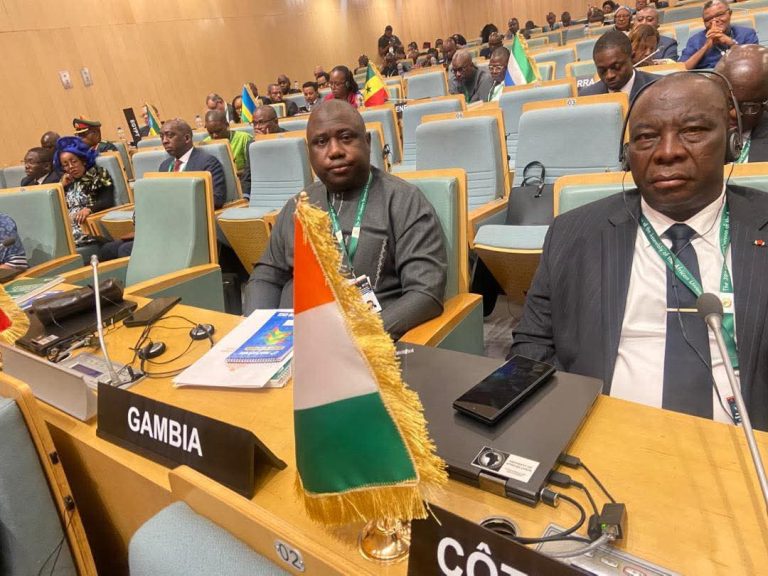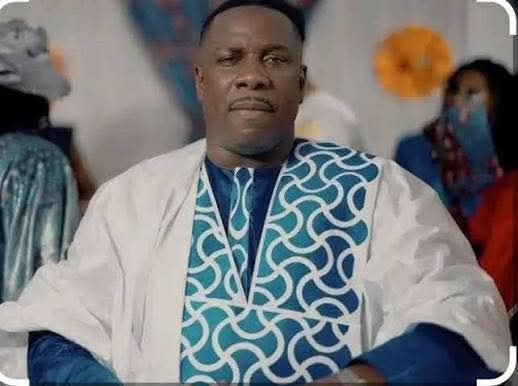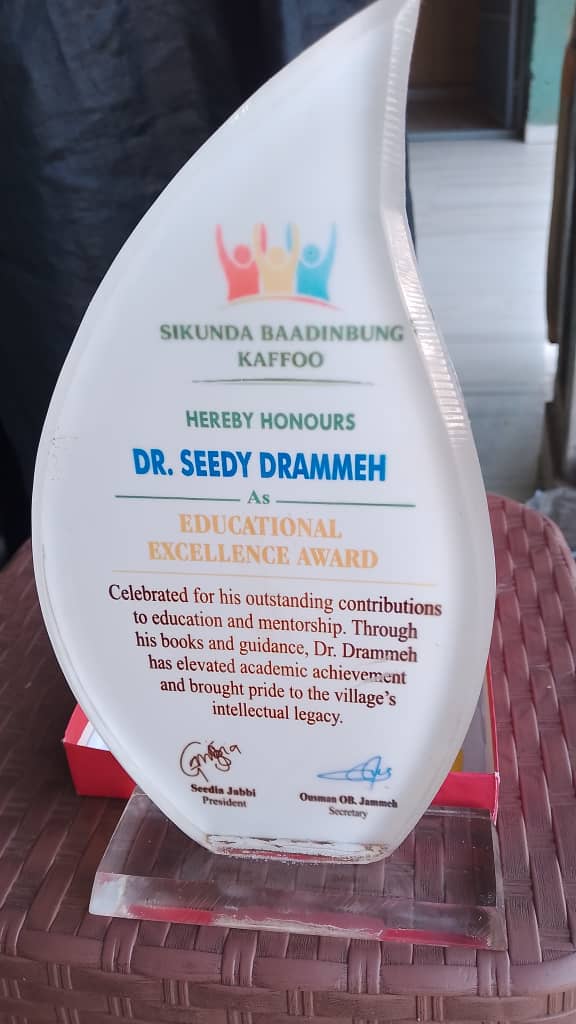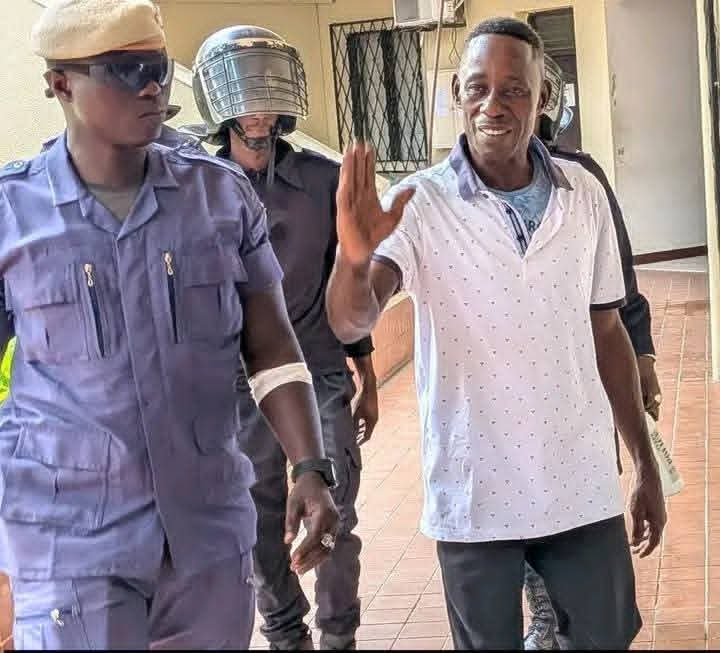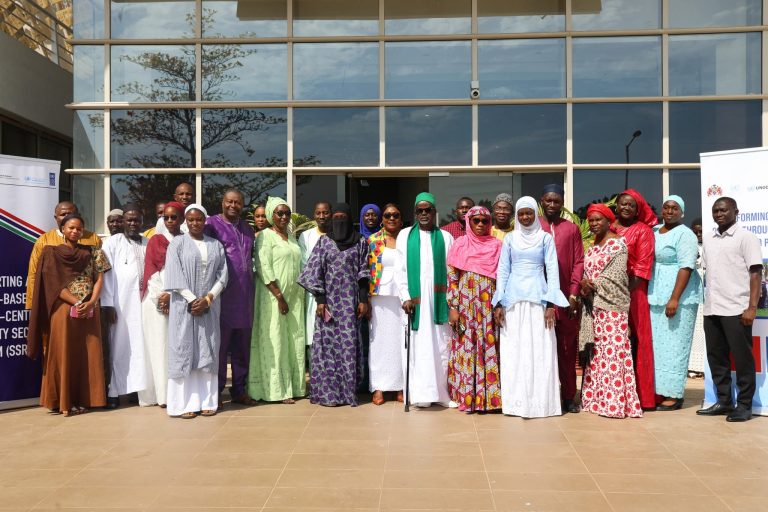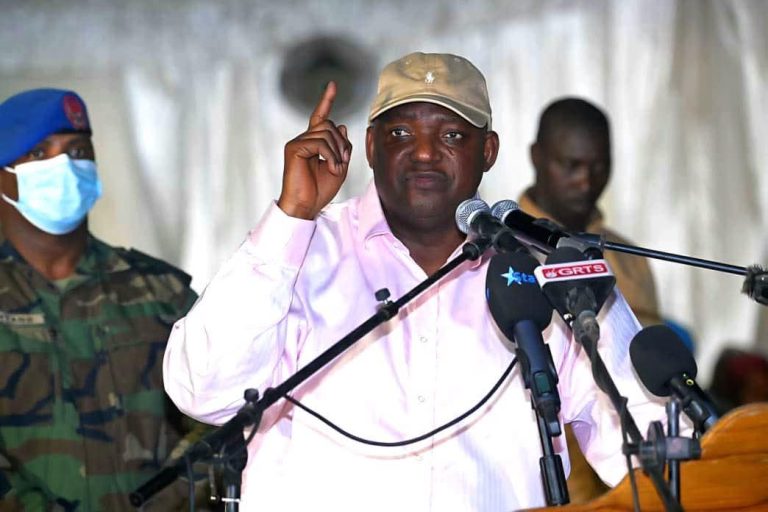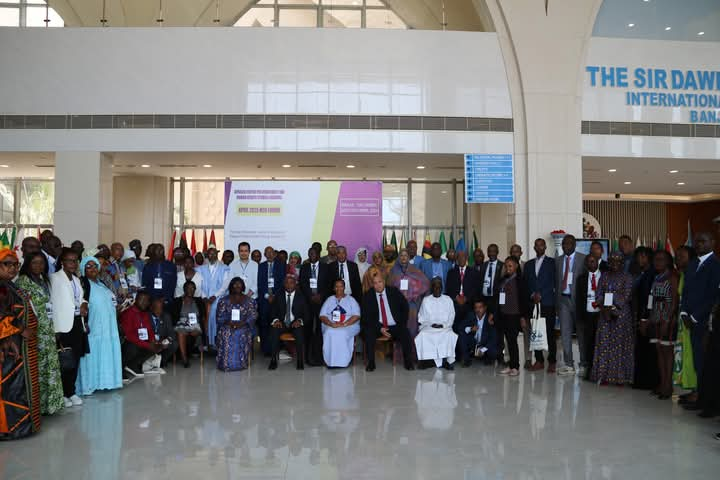
BANJUL, The Gambia — May 1, 2025 — The Forum on the Participation of NGOs in the 83rd Ordinary Session of the African Commission on Human and Peoples’ Rights concluded on Wednesday, April 30, 2025, at the Sir Dawda Kairaba Jawara Conference Centre in Banjul. The three-day event, held under the theme “Justice Through Reparations for Africans and People in the Diaspora,” brought together human rights defenders, civil society actors, and international stakeholders in a powerful call for justice, dignity, and redress.
Organized by the African Centre for Democracy and Human Rights Studies (ACDHRS), the Forum created a critical space for reflection, strategy, and solidarity among participants from across Africa and the diaspora. Issues discussed ranged from historical injustices stemming from colonialism and slavery to ongoing human rights violations, repression of civil society, and the struggles of migrants and marginalized communities.
Mrs. Hannah Forster, Executive Director of ACDHRS, who moderated the opening ceremony, emphasized that reparations must go beyond financial compensation. “We must ask ourselves: can the dignity of a person truly be measured in financial terms? Reparations must reflect restoration of dignity, justice, and truth,” she said. She welcomed a host of dignitaries and reiterated the Forum’s commitment to shaping strategies that guide African states toward meaningful justice.
Solidarity Across Borders
Prof. Mohamed Mabassa Fall, Vice Chairperson of the ACDHRS Governing Council, expressed appreciation for The Gambia’s consistent support. Speaking on behalf of the Chairperson, Justice Solome Bossa, he highlighted the role of the Forum in elevating diverse voices, including those of survivors of human rights violations. “This Forum is defined not by numbers, but by the strength of its ideas and its impact,” he stated.
Participants reaffirmed their support for organizations such as REDHAC, which continue to face political and financial repression. Naji Moulay Lahsen of the NGO Forum Steering Committee lamented the shrinking civic space and rising threats to freedom of expression, particularly through the misuse of anti-terrorism laws. “The deterioration of human rights on the continent is alarming, and we must act collectively to resist this tide,” he urged.
Pushing for Systemic Change
In a virtual address, Mr. Gilbert Sibi-Hugo, Executive Director of the Network of African National Human Rights Institutions, reiterated the importance of collaborative efforts to achieve justice. “Reparations are about healing, transformation, and structural redress. They are essential to restoring dignity to African peoples,” he said.
Mr. Jeggan Grey-Johnson of the Open Society Foundations situated the discussions within a broader geopolitical context, citing the resurgence of right-wing ideologies, global instability, and conflicts across Africa. “Despite global setbacks, this year, declared by the African Union as the Year of Justice for Africans and People of African Descent through Reparations, presents a unique opportunity to push for a unified African position,” he stated.
He noted that events in Sudan, the DRC, and Northern Mozambique underscore the urgency of reinforcing the rule of law and protecting victims of systemic injustice.
A Cultural and Emotional Dimension
Poet Hassan Sesay delivered a stirring piece inspired by the AU’s theme, capturing the emotional and historical weight of the reparations debate. His poem served as a reminder that justice is not only a legal pursuit but also a moral and cultural imperative.
The three-day Forum on the Participation of NGOs in the 83rd Ordinary Session of the African Commission on Human and Peoples’ Rights convened civil society organizations, human rights defenders, and other stakeholders to deliberate on critical human rights issues across Africa. Serving as a preparatory platform ahead of the Commission’s session, the forum facilitated experience-sharing, analysis of emerging challenges, and collective strategizing. Key thematic areas discussed included freedom of expression, the rights of women and indigenous peoples, access to justice, and civic space protection. Participants developed a set of recommendations, urging the African Commission to strengthen collaboration with NGOs, enhance the protection of human rights defenders, and ensure accountability mechanisms are enforced across member states. The forum concluded with a unified call for greater political will and resource allocation to uphold human rights on the continent.
As the Forum closed on April 30th, participants adopted key recommendations and presented them at the 83rd Ordinary Session of the African Commission on Human and Peoples’ Rights. These proposals aim to guide African states, institutions, and partners in advancing reparatory justice rooted in dignity, recognition, and reform.
For more information, please Contact
Pa Modou Cham
ACDHRS Information and Communication Officer
Banjul, The Gambia
Tel: +220 3163509 E-mail: infocom@acdhrs.org

